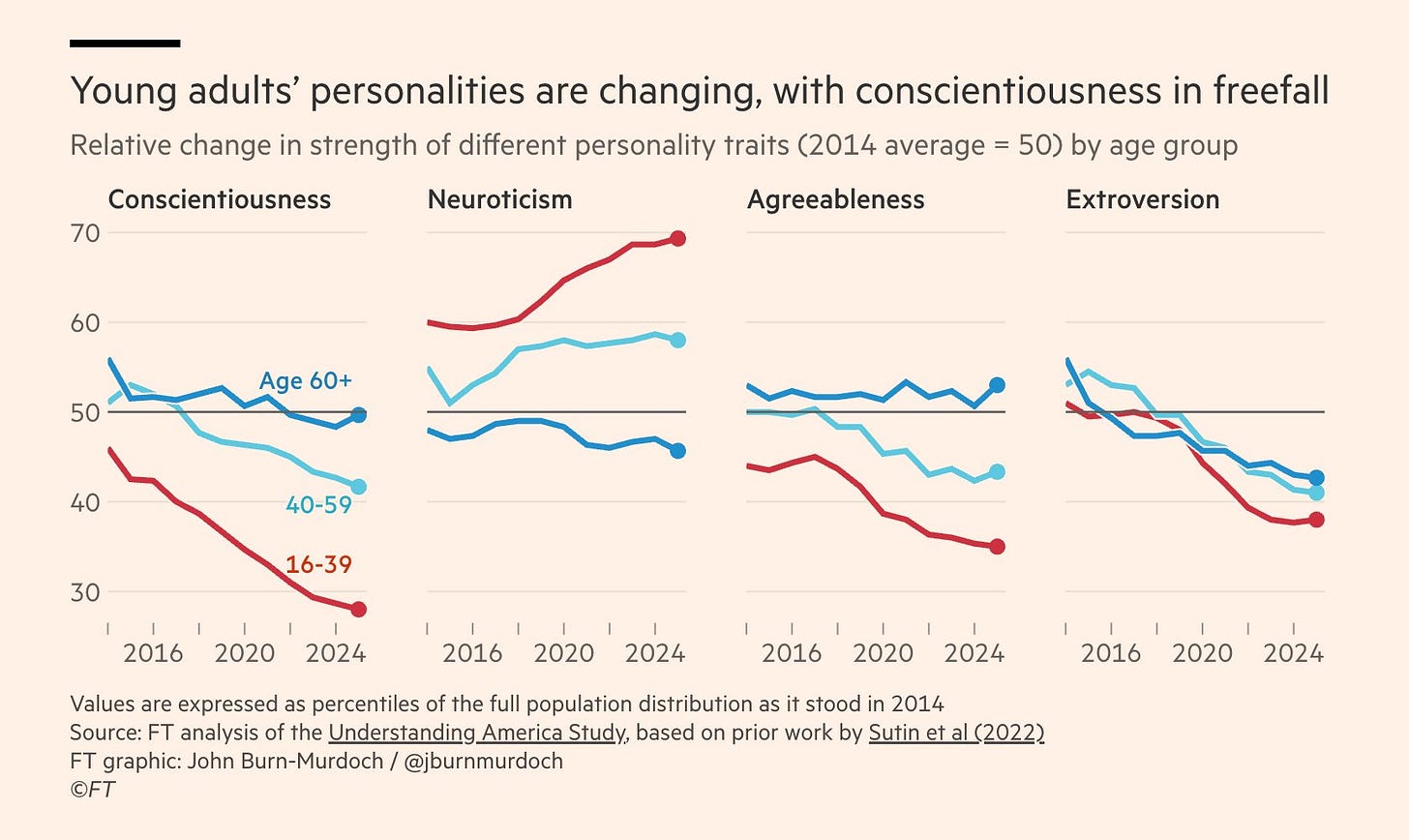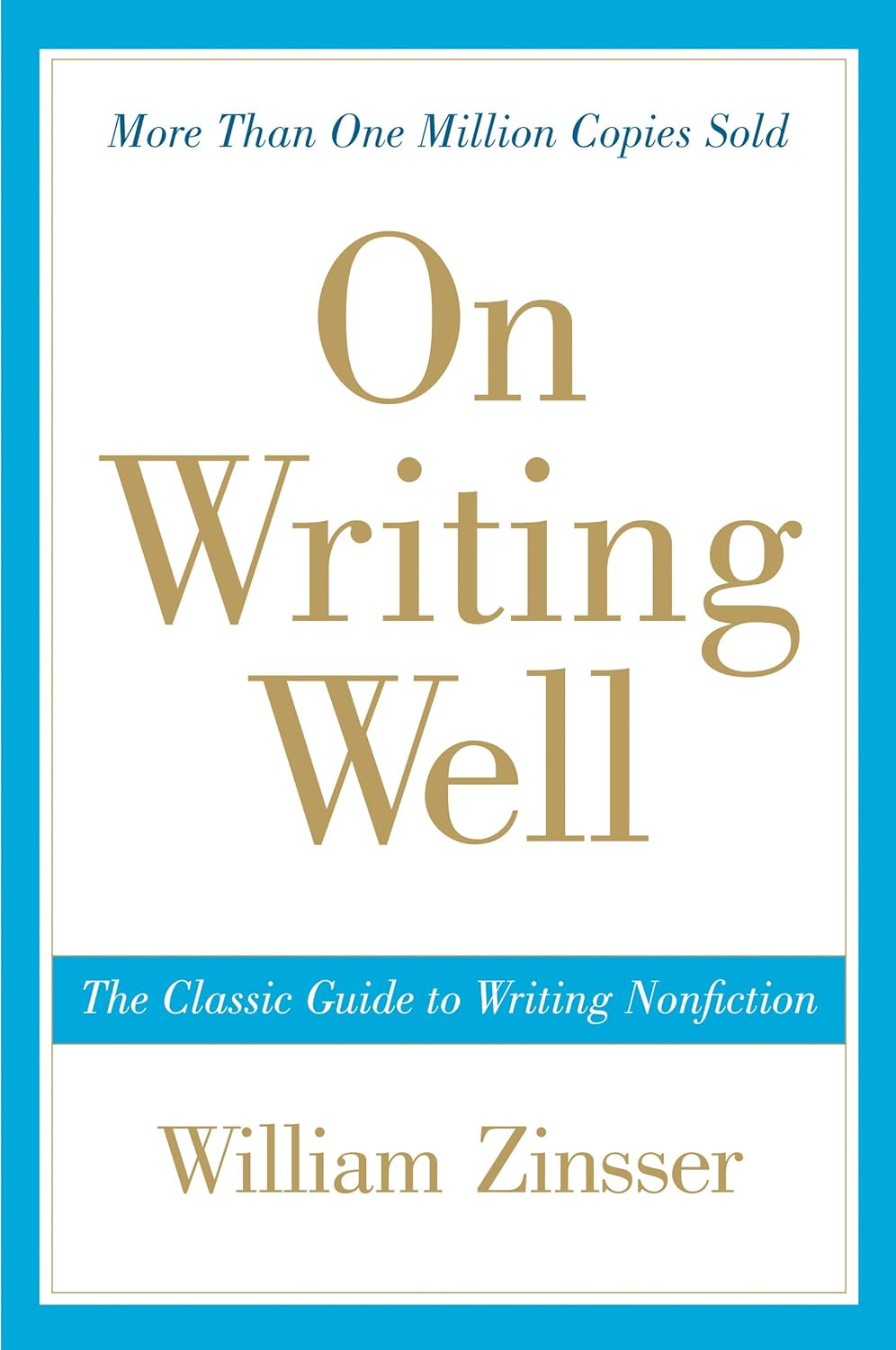Write or Die
No matter what the future brings, you *must* learn to read and write well.
We’re in the process of teaching my oldest son how to read. He touches the letters with his finger, whispering the sounds. Muh- muh- monkey. M is for monkey! It’s beautiful to watch, and my heart leaps at the idea that soon he might discover the joy of reading books for himself.
We’re trying to nudge him in that direction, but he already has an inner drive to know more about words—about what things are called, what signs and symbols mean, and how to use them. Is that drive innate in most kids?
What about in adults?
I keep thinking back to this horrifying Apple ad that came out late last year. I’m not gonna describe it. Just watch it below (or save yourself and close this tab).
What to say? It’s one of the most insulting advertisements ever aired.
You, the viewer, are meant to identify with Warren: a lazy, barely literate slob with the attention span of a child. Luckily for Warren, Apple Intelligence is there to rewrite his emails and impress the bossman. Be like Warren! Write smarter.
I don’t have a good theory of mind for Apple’s ad team. How were people expected to react to this? I don’t have an issue with the product being advertised. It’s a bog-standard LLM tool which plenty of people use to clean up their emails. Writing is a genuinely miserable task for many people, after all, and it would be nice to be able to tap a button to instantly professionalize a sloppy draft. You can imagine how the actual product might be useful.
But why is the guy using it—an Apple customer!—depicted as a total moron?
The most generous possible interpretation might be that Apple intends for us to laugh at Warren while still basically identifying with his problem. I think this is probably how they thought about it. No competent marketing department is trying to intentionally insult their users.
But the less generous interpretation is clear: Apple thinks you’re stupid. CNET’s Bridget Carey made this case sharply back when this ad first came out last year:
Let’s set aside the intentions of the Apple ad department. Regardless of the intent, the actual message of the ad itself is nonsense, for reasons anyone could pinpoint just by asking: what happens next?
The selling point of the Apple ad is all about the first-order effects of using their AI product. If you use Apple Intelligence to fix your awful writing, you’ll look smarter and impress your boss. Very cool! Except, wait a second. What happens next for Warren? If a baboon like him can figure out how to use Apple Intelligence, surely at least half of his coworkers will figure it out as well, right? (This would be a second-order effect.) And then (third-order effects incoming) Warren’s boss will no longer be impressed by the quality of Warren’s AI-assisted writing, because it’ll look exactly like everyone else’s. Uh-oh! Now Warren is back where he started! He’s no longer writing smarter. He’s writing on par.
There’s another possible second-order effect. What happens if Warren’s boss walks over to Warren’s desk to have a conversation about that email? If Warren’s boss has any perceptual abilities at all, he’s likely to notice that Warren-in-Person seems to have about 40 fewer IQ points than Warren-over-Email. At that point, (third-order effect incoming) Warren’s boss is likely to realize that Warren used an AI to write that email. Oh no, Warren! You’ve been exposed!
The post-literate society
There’s been a lot of talk recently about how society is becoming post-literate. After the OECD conducted a global study on “adult skills” last year, they found that literacy rates are declining almost everywhere. “Thirty per cent of Americans read at a level that you would expect from a 10-year-old child,” according to an interview with the study’s organizers in the Financial Times.
This isn’t some new trend introduced by AI. Forty years ago people were sounding the alarm about the possible negative effects of reorienting our entire society around image-based entertainment. You don’t even have to think back that far: We’ve suffered through eight or nine years of the pivot to video.
Not to put too fine of a point on it, but the literacy problem is likely part of a longer-term trend that’s emerging in data in a bunch of other troubling ways. Young people are not doing so hot!

“Nobody reads!” some say. “So you’ve gotta reach people where they’re at.”
Maybe they’re right. With even highly-educated kids unable to read books, the actual, real-world impacts of dropping literacy rates are becoming clearer.
Literacy isn’t a binary thing. There are many shades of grey between “highly literate” and “can’t read.” As pointed out by the OECD reps, a true count of illiterate people in a modern society would include millions of adults who can make sense of most of the written content they encounter while navigating their daily lives—but who can’t enjoy books intended for adults or express their own thoughts effectively via writing. This will be one of those things that might be obscured in the gathered statistics. For instance, even if the number of reported books read per year by adults stays flat, the literacy rate is still dropping if those books are less complex, less rich.
Warren, the unfortunate soul we encounter in the Apple commercial, isn’t actually intended to be understood as a totally illiterate person, but he’s less literate than the people around him. We can assume from the medium of the message (a mass-audience television ad) that Apple assumes the audience is like Warren. The statistics say they’re correct.
What happens next, if Warren doesn’t learn to express himself? If he’s spinning in circles and playing with tape all day, what’s gonna happen to Warren?
How to save your mind
Every parent I know has been worrying recently about how to prepare their kids for the world that’s coming. For my own three kids, I’m increasingly convinced the best thing is to help them become not just literate but very highly literate.
But the problem isn’t just about literacy. The thing that’s gonna ultimate screw Warren—were his fictional life extended into a multi-episode series—is his inability to communicate like an adult in any scenario where he doesn’t have Apple Intelligence on hand.
Consider the second and third order effects. If you aren’t comfortable expressing your own thoughts, you’re going to fall apart the first time somebody questions or challenges you in person. You’re gonna embarrass yourself at work. You’ll get into stupid fights with your loved ones caused by misunderstandings.
What happens next is: Warren is not gonna make it.
People that learn how to read and write well tend to do better in life because they’re able to think more clearly and see more clearly. Most of the modern world, in all its boiling chaos, is only really knowable to us in concepts best expressed using words. The better you understand how to use words, the better you’ll understand how to navigate the world. This won’t change, even in a so-called post-literate society.
At some point, when my kids are ready, I’ll tell them something like this:
Pick up a classic book and read it so closely that you internalize its author’s worldview. Find a nice journal and write down the thoughts that are too complicated to express out loud. Study On Writing Well by William Zinsser so you can begin to understand the logic that underlies sentences, paragraphs, and chapters. And then, once you’ve started to understand how words work, you have the tools to start to ask better questions about how things fit together. There’s a positive feedback loop that kicks in if you actually give your time over to reading and writing. You get better at making sense of the words in front of you, and at using those words yourself. And by learning how to write well, you will necessarily learn how to think well.
That’s it for this week. I’m gonna go read some emails.






Beautiful post.
I couldn't agree more with you and am genuinely frightened when I think of a whole generation that will grow into adults without the basic critical thinking skills that come from reading books.